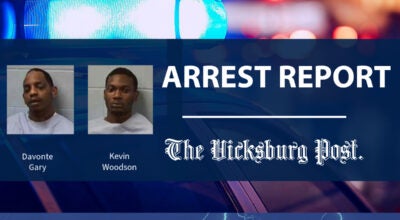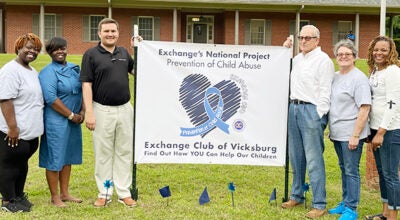Big Black opponents cite free speech rights
Published 12:00 am Thursday, August 2, 2001
[08/02/01] JACKSON Attorneys representing two Vicksburg casinos argued Wednesday before the Mississippi Supreme Court that they merely exercised their free speech right in opposing a proposed gambling development along the Big Black River near Bovina.
R. David Kaufman, a Jackson attorney representing Harrah’s, said that both sides of a proposal to build a casino 13 miles east of Vicksburg engaged in intense lobbying efforts, but that Harrah’s and Ameristar should not be made to pay a $3 million civil judgment because the Mississippi Gaming Commission denied the permit to build at the Bovina location.
“I know they’re disappointed, but I don’t think they have a right to sue,” Kaufman said.
A Pike County jury sided with Warren County landowner E.L. Pennebaker and Jim Belisle, of Multi-Gaming Management in October 1999 the two casinos and a bank had engaged in prohibited monopolistic behavior in working against their Bovina project.
Pennebaker and Belisle, who both had signed contracts with Horseshoe Gaming to develop a casino and auto racetrack and hotel complex, sued Harrah’s and Ameristar, which operate casinos and hotels in Vicksburg, AmSouth Bank when it was Deposit Guaranty and the Isle of Capri. Rainbow, a fourth Vicksburg casino, did not oppose the development. The Isle settled before trial and AmSouth got out of the case after the Pike County court returned its verdict, leaving only Harrah’s and Ameristar in the appeal.
Clinton attorney William Spell, representing Pennebaker and Belisle, said that the court would determine the future of competition among developers, specifically whether established companies could work to keep others out.
“Our side was working in support of the Legislature’s announced policy that there shall be competition in gaming,” Spell said.
Wayne Dowdy of McComb, also representing Pennebaker and Belisle, said that the justices should not overturn the decision of the Pike County jury unless the court finds that no reasonable juror would have found as they did.
“Jurors decide proximate cause and these were reasonable and competent jurors,” Dowdy said.
Pennebaker owns land near the planned site for a casino and racetrack on the Big Black River by Belisle’s group. The casinos, the City of Vicksburg and local business groups had opposed the development at the site near the Big Black River which was ruled legal by the three members of the Gaming Commission, but rejected as unsuitable. The 1990 legislation that allowed casino development along the Mississippi Gulf and in river counties empowered the commission to determine legality and suitability before issuing operating licenses, but did not define what suitability meant.
The casinos originally argued they exercised their constitutional right to free speech in opposing the Big Black site, which they said was unsuitable for a variety of reasons including environmental and historical.
Justice Chuck McRae questioned whether private conversations with members of the gaming commission should have been in public so both sides could have had the opportunity to respond. Neville Boschert, attorney for Ameristar, said that the commission has an open-door policy and that both casinos followed that policy.
“There was an open-door policy put in place and (the casinos) played by the rules,” Boschert said.
A year after the Gaming Commission rejected the site as unsuitable in 1996, a Hinds County judge reversed that ruling. No development has occurred, however, since the Gaming Commission immediately appealed in a separate case to the Supreme Court.
The court heard arguments 16 months ago on the issue of the license for the Big Black site, but has not decided the case.





